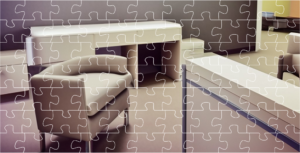Psychiatry Opinion is as private as you wish. No one else is informed or knows our Opinion. You do not have to share the Opinion with another person, an insurance company, or anyone at all. You have not received psychiatric treatment from us. If you want absolute privacy or want to be anonymous, just let us know what you think is needed.
Psychiatry Opinion will explain the differences among habits, patterns, weaknesses, signs, symptoms, conditions, diseases, illness, neurodiversity, traits, vulnerabilities, stress reactions, and related terms.
You are correct. Anything that is considered “mental” is always the result of your physical brain interacting with other physical things . These other physical things are made of molecules, atoms, etc. and include your environment, communications, the other physical parts of your body, other physical parts of your brain including neurotransmitters, memory circuits, emotion circuits, etc. These are all physical, including the connectome (wiring diagram of the brain). We discover more each day from research using new technology to understand the mechanisms causing problems, but there is much we have not yet figured out. Just because the details of something are still being figured out is no reason to say it is not as real as anything else. Gremlins do not cause your car’s engine problems. There are software problems and hardware problems and both are real.
You can ask her or him. Also ask yourself why it would not be a good idea to get another opinion. Assume the goal is to be helpful to you and to improve your future. Second medical opinions are quite common in most medical specialties (and one doctor will often request a second opinion) except for psychiatry. I know it makes me a little anxious when I know another doctor will give their perspective about my patient and my treatment. However, it turns out that another unbiased intelligent professional opinion will usually shed more light and add something useful that we can use in treatment. There are always alternative ways of accomplishing something, and logically there should be a benefit in getting other opinions. We assume the ultimate motivation is to help you. And sometimes there may be reasons why you will choose not to get a second opinion or not to discuss this with your current doctor, and I think this may relate to important mutual trust issues.
There are pros and cons to having an annual physical exam as well. Some people haven’t been to a doctor in years, and they plan to wait until some symptom that worries them occurs. Others believe in having checkups to get early warning signs of potential risks such as high blood pressure, hearing problems, or cholesterol levels. In psychiatry we look at additional features which are not usually checked in an annual physical exam. This includes functioning at work, school, relationships, emotions, habits, worries, and self care. We want to identify early signs and risk factors. People often want to know where they stand in terms of the future.
We do a basic interview psychiatric history / evaluation and will also evaluate any results of testing or previous evaluations that you share with us. Some of the above tests can be useful; others have limited evidence; we can help you understand how to interpret these. We will also let you know of further studies that will shed light on diagnosis or treatment. We have decided to focus our effort on what is known and basic in the specialty of psychiatry. Research is ongoing and new discoveries keep emerging daily and weekly. We use our time to evaluate you as an individual and to have a conversation that will be useful.
Sometimes all is going well and there is no need for an additional psychiatric opinion. The concept of “collaborative care” is emerging more and more. Psychiatry overlaps a great deal with both general medicine and psychotherapy. You could discuss with your personal physician (and your therapist) whether a psychiatric evaluation could be beneficial. Many primary care doctors would be interested in knowing what diagnoses, medications, or therapy approaches are considered by a psychiatrist. And they would be willing to prescribe medications if indicated. They would also want to know that a psychiatric specialist has no new recommendations.
